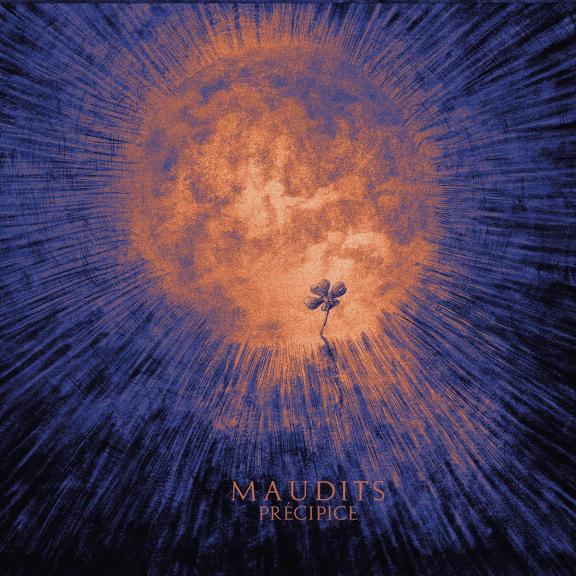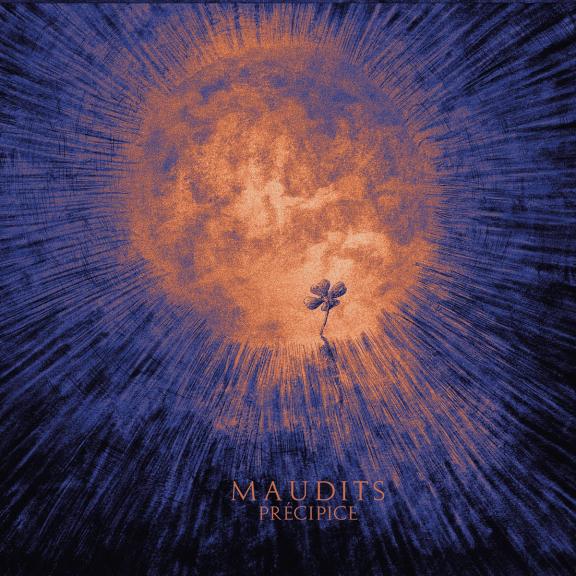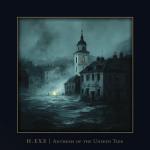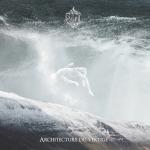As 2024 is coming to an end, it's probably time to tell you about one of the best-kept secret albums of the year. We're all familiar with the formula, the record that no one picked up on, or only belatedly, the originality of the compositions, the innovation or anti-conformism in the face of current musical trends. Maudits belong to that family of musicians whose relationship with art is not only linked to myth, but to the spirit's ability to separate itself from ego.
Baladins banished from the highways and byways, left among the godless to dispense their grief, their inspirations and their melodies, the intention of musicians, poets and visual artists is that their conscience should come to know itself, becoming the prism through which the work is integrated and divided into several segments. Cursed blues in which the spirit is confronted with the original dilemma: the recognition of contemporaries at the price of a glory that yields nothing but zeros and dust. Don't take the word of the humanists in a business where profitability is paramount, the sinews of cultural warfare are competitive. Everything is interchangeable. Except that here, even on the precipice, Maudits use a panoply where each object has a voice to tell its story.
From the furtive capture of a string rubbing to the precise gesture of each instrument, Maudits establishes a sound color in a composite interconnection close to diamond. Each facet, each chord is a support for images suggested by the evocative titles - Vielä Siellä, Seizure. Caught up in a strange Shakespearean witch's curse, Précipice, the album's two-part opener, is musically transformed as arpeggiated guitar riffs, reminiscent of Grails and God is An Astronaut, are embroidered, all solidly supported by patterns and searing blasts whose multiple rebounds are scaffolded by the drums. Raphael Verguin on cello (Rïcïnn, Psygnosis) rounds things off. There's never a dull moment on this protean album, with beauty rubbing shoulders with despair, the sublime and the sacred. The guitar-cello passages seem to only be one instrument. Seizure is certainly the most luminous track on the 11-minute album, with Olivier Dubuc deploying an arsenal of atmospheric riffs, and Erwan Lombard and Christophe Hiegel contributing the stone that serves as a monument (the bass/guitar duet on Seizure). Maudits even manage to solve the musical equation in which so many bands lose their way, with an ingeniously logical line of flight. Rather than giving each other the runaround, each instrument participates in this sonic, pictorial canvas. Pretium Doloris is the link with the explosive Séquelles, and the only way to emerge unscathed is to purge the slag from the soul.
It's exactly here, in the second part of the track Précipice, that the record's turning point exerts a concentric force combining euphoria and capsizing, where all the sensations of vertigo and fever come together, conjuring up the death of the past. Lights End sounds like harpsichord, with strings and acoustics forming purified matter, before night slips between the trees. And what can we say about the apotheosis at the end of the track, with its layers of mellotron?
Of Maudits, we should mention their previous eponymous album on Klonosphere and a whole series of concerts and performances that already revealed the band's trajectory. The trio's music reaches our intimacy, teaching us to look at ourselves lucidly; their music is unlike any other, and that's what sets them apart. With this second album, Maudits climb the ladder to a climax, where everything seems to be shrouded in a neutral color, the mantle of the earth, asleep.






